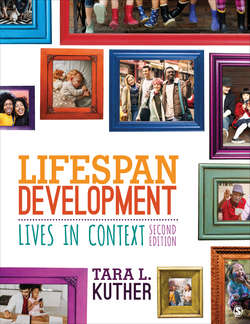Читать книгу Lifespan Development - Tara L. Kuther - Страница 63
На сайте Литреса книга снята с продажи.
Behaviorist and Social Learning Theories
ОглавлениеIn response to psychoanalytic theorists’ emphasis on the unconscious as an invisible influence on development and behavior, some scientists pointed to the importance of studying observable behavior rather than thoughts and emotion, which cannot be seen or objectively verified. Theorists who study behaviorism examine only behavior that can be observed and believe that all behavior is influenced by the physical and social environment. For example, consider this famous quote from John Watson (1925), a founder of behaviorism:
Give me a dozen healthy infants, well formed, and my own specified world to bring them up in and I’ll guarantee to take any one at random and train him to become any type of specialist I might select—doctor, lawyer, artist, merchant, chief, and yes, even beggar-man and thief, regardless of his talents, penchants, tendencies, abilities, vocations, and race of his ancestors. (p. 82)
By controlling an infant’s physical and social environment, Watson believed he could control the child’s destiny. Behaviorist theory is also known as learning theory because it emphasizes how people and animals learn new behaviors as a function of their environment. As discussed in the following sections, classical and operant conditioning are two forms of behaviorist learning; social learning integrates elements of behaviorist theory and information processing theories.
